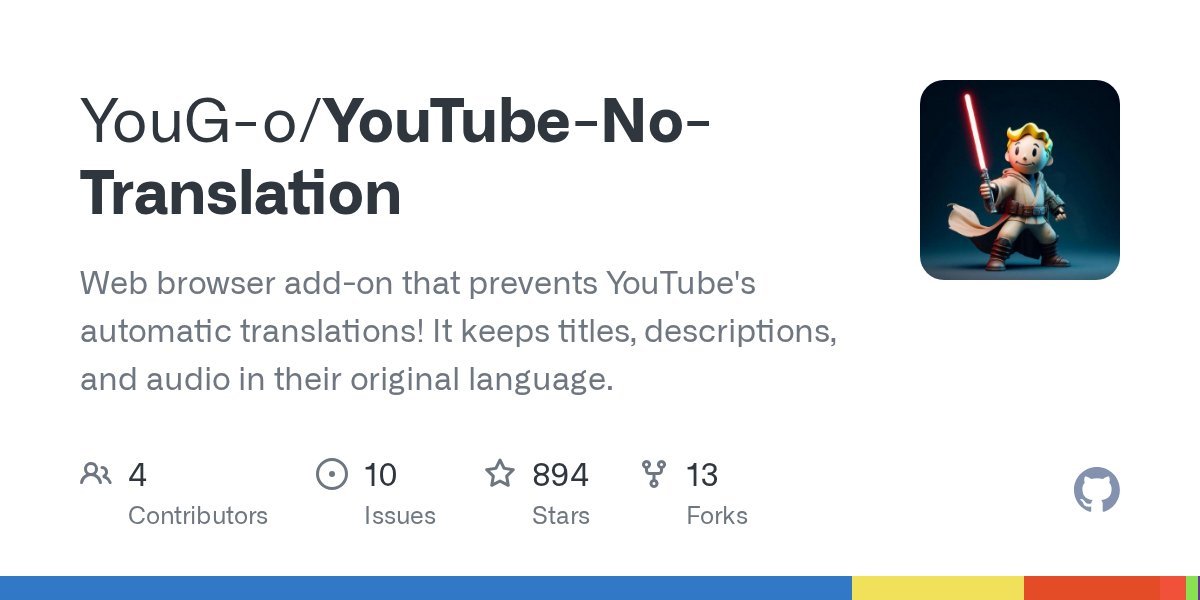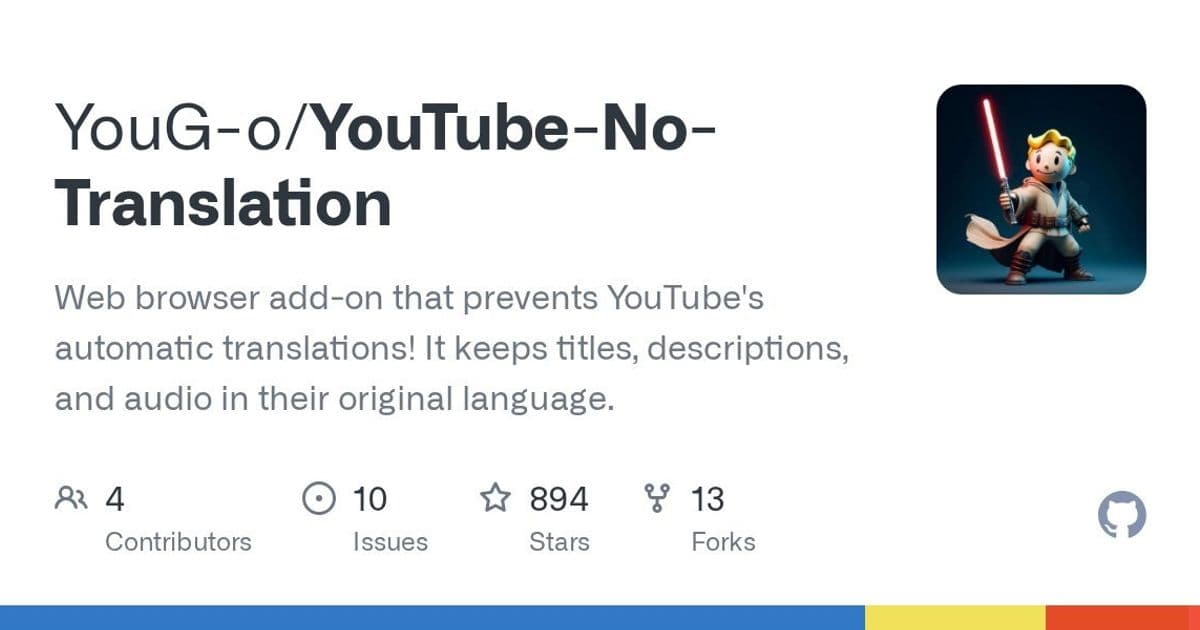A new open-source browser extension empowers users to preserve YouTube's original content by disabling forced translations of titles, descriptions, and audio. Developed for purists and language learners, the tool offers granular control over localization settings and supports community-driven development.

For polyglots, language learners, and content purists, YouTube's aggressive auto-translation features often disrupt the viewing experience. The YouTube No Translation browser extension solves this by enforcing content authenticity across the platform. This open-source tool gives users precise control over how—and whether—localization occurs on the world's largest video platform.
The Translation Intervention
YouTube's automatic translation behavior has long frustrated users who prefer original audio or need precise terminology for technical content. The extension combats this by:
- Preserving original video titles across feeds, notifications, and Shorts
- Locking audio tracks to creator-provided sources
- Blocking automated description translations
- Enforcing user-configured subtitle preferences (disabling subtitles if preferred languages are unavailable)
Developers appreciate the optional YouTube Data API v3 integration, which fetches original metadata directly when users provide their own API key. This ensures maximum reliability for title preservation.
Technical Execution
Built with modern web extension standards, the project offers multiple installation paths:
# Clone and build from source
git clone https://github.com/YouG-o/YouTube_No_Translation.git
cd YouTube_No_Translation
npm install
# Build for target browser
npm run package:firefox # or package:chromium
Safari support requires Xcode compilation, while Firefox versions below 128 need legacy manifest builds. {{IMAGE:2}} {{IMAGE:3}}
Community-Driven Future
The project thrives on contributor involvement, with clear guidelines for adding features or fixing bugs. Its AGPLv3 license ensures open stewardship. Maintainers encourage support through GitHub stars, store ratings, or optional donations—critical for sustaining free tools amid platform API changes.
{{IMAGE:4}} {{IMAGE:5}}
For developers, this extension highlights growing user demand for configurable localization rather than algorithmic assumptions. As platforms increasingly override preferences, such tools become essential for preserving authenticity in global content ecosystems.
Source: GitHub Repository

Comments
Please log in or register to join the discussion